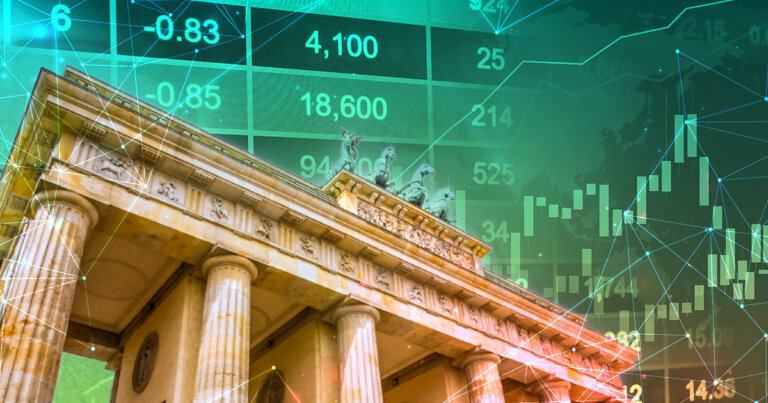 Germany’s new regulation paves way for tokenized digital shares
Germany’s new regulation paves way for tokenized digital shares Germany’s new regulation paves way for tokenized digital shares
Germany's new financial act would allow the "testing of improved transferability of crypto assets."

Cover art/illustration via CryptoSlate. Image includes combined content which may include AI-generated content.
Germany continues its crypto-friendly stance by introducing a new law allowing companies to issue crypto shares.
The German Ministry of Finance said it was working on the Future Financing Act, a law “intended to support private asset accumulation and mobilize more private capital for future investments .”
Other key improvements include the reduction of minimum capital for IPOs to €1 million to enable more investments in small companies and startups.
Crypto shares explained
When passed, the law will make it possible for corporations to issue either electronic or conventional shares. The electronic securities can be registered in the central register or on the blockchain — hence the term “crypto shares.”
This means the law tokenizes stock shares. However, it is unclear whether crypto exchanges will be allowed to trade such shares.
Speaking on the law, the Federal Minister of Finance Christian Lindner said:
“We want to make Germany the leading location for startups and growth companies. Therefore, we are improving access to the capital market and facilitating the absorption of equity.”
Notably, the website mentioned that one of the critical improvements in the Act is the “testing of improved transferability of crypto assets.”
Circle’s director of EU strategy and policy, Patrick Hansen, pointed out that German law already allows the issuance of tokenized bonds and funds. He added that:
“Shares are the next big step forward.”
Germany’s pro-crypto stance
This law continues the country’s trend of creating an enabling regulatory environment for cryptocurrency. Last year, Germany was ranked as the most crypto-friendly country in the world by CoinCub. The ranking factored the country’s regulatory clarity and strong legal frameworks into its decision.
Boerse Stuttgart Digital, the second-largest stock exchange in the country, was recently licensed by Germany’s Federal Financial Supervisory Authority (BaFin) to offer crypto custodial services.
In February, the third-largest publicly traded company in Germany, Siemens, issued its first digital bond worth €60 million ($64 million) on the Polygon (MATIC) blockchain.























































